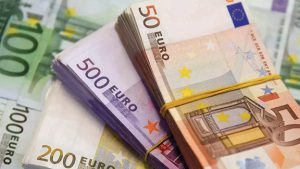Bloomberg
European stocks headed for their first weekly gain since the start of the Ukraine war as investors mulled central bank policy decisions and the outlook for economic growth.
The Stoxx 600 Index was up 0.9% in London after briefly falling as much as 0.2% as Russia’s invasion of Ukraine caused continued volatility.
Travel and leisure and mining stocks outperformed, while the utilities and food and beverage sectors were among the biggest decliners.
“Headlines, sentiment and technicals are driving equities, which is likely to continue without de-escalation in Ukraine, despite them now pricing a sharp slowdown in both EU earnings and the economy,†Barclays strategist Emmanuel Cau wrote in a note.
Global stocks are wrapping up another volatile week as red-hot inflation and surging commodity prices keep investors on edge about slowing economic growth. The benchmark Stoxx 600 is on course to post its first weekly increase in four, but is still in correction territory as traders swap European equities for US stocks, basic materials and gold following Russia’s invasion of Ukraine, according to Bank of America strategists.
Still, the latest data showed the UK economy bounced back above its pre-coronavirus level in January, while in Germany, February consumer prices rose in line with economists’ expectations. The German DAX Index was up 1.3%, also set for a weekly gain after slumping into a bear market on Monday. The FTSE 100 rose 1.1%.
“The UK’s better-than-expected bounce back from December shows the success of the government‘s Covid support programs, but for investors, the key question now is whether the economy can continue to be resilient in the face of rising inflation,†said Emma Mogford, fund manager at Premier Miton Investors.
Holger Schmieding, chief economist at Berenberg, said he expected the euro area economy to grow 3.3%
this year, but with “a lot of
uncertainty.â€
“We have a lot of pent-up demand, households have money to spend and governments want to spend more money. So if and when — and that’s a big if and when — the situation regarding Ukraine becomes clear, the euro zone economy would likely pick up significantly,†he said.
In the latest geopolitical updates, President Vladimir Putin agreed to a proposal to send over 16,000 “volunteers†from Middle Eastern countries and ship more weapons to aid Donbas separatists, according to the transcript of a Russian Security Council meeting.
 The Gulf Time Newspaper One of the finest business newspapers in the UAE brought to you by our professional writers and editors.
The Gulf Time Newspaper One of the finest business newspapers in the UAE brought to you by our professional writers and editors.
